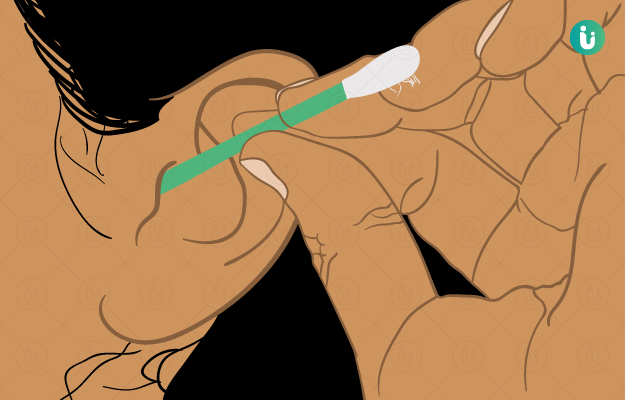What is Ear Discharge?
Discharge from the ear is a symptom associated with many conditions, such as an ear infection, inflammation of the ear, injury to the external or middle ear, and rarely ear cancer. It is termed as otorrhoea and can be an acute or chronic condition. The discharge is very unpleasant and can be seen in any age group but predominantly in children. The discharge could be in the form of pus, mucous, wax, or blood.
What are the main associated signs and symptoms?
The most common reason for the ear discharge is infection and inflammation of the external ear or middle ear. You may have the following signs if you are having a discharge from ear:
- Pain in the ear
- Oozing of smelly fluid from ear
- Loss of balance
- Irritation
- Loss of sleep
- Pulling of ear
- Fever
What are the main causes?
Ear discharge is a common symptom and is most commonly seen in children below the age of 5 years due to a poorly developed Eustachian tube and low immunity. It can also occur in adults. If an individual experiences unpleasant drainage of fluid from the ear it can be due to
- Infection of the middle ear (otitis media)
- Infection of the external ear (otitis externa)
- Inflammation of the ear
- Cold
- Injury to the temporal bone
- Ear neoplasm (rarely reported)
- After the effect of an ear surgery
How is it diagnosed and treated?
It is very necessary that you undergo a thorough diagnosis of the drainage of fluid from the ear. However, micro-suction of the fluid must be carried out before any examination. The first step of diagnosis is taking patient history by an ear, nose, throat (ENT) specialist, and further diagnosis can be made based on
- Ear examination
- Pneumatic otoscopy
- Tympanometry
- Hearing test
- Blood test if immunodeficiency is the cause
- Analysis of the discharge or ear swabs culture to find out the pathogen
The treatment of ear discharge will be decided after a proper diagnosis is made. Once an antibiotic sensitivity test result is obtained, the medication can be finalised. The treatment comprises of the following:
- Analgesics to control pain
- Topical steroids
- Antibiotic ear drops
- Mucolytic drops if the discharge is waxy
- Oral antibiotics
- Antifungal formulations to clean the ear if the infection is due to fungi
- Antipyretics to control fever
Along with the treatment, some self-care measures, such as avoiding exposure to smoke and protecting infants and children from cold ear infections, can help prevent ear discharge.
Ear discharge needs to be treated as it can be a painful condition and lead to impaired hearing in some cases. Malignancy may be a rare cause associated with discharge. A proper diagnosis and treatment is required for the management.

 Doctors for Ear Discharge
Doctors for Ear Discharge  OTC Medicines for Ear Discharge
OTC Medicines for Ear Discharge



















